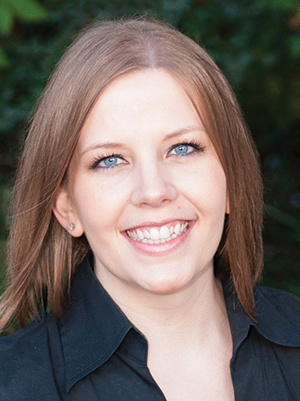My father has cancer and seems depressed. How can I help him?

Wendy Griffith, Senior Social Work Counselor at the University of Texas M.D. Anderson Cancer Center in Houston Photo courtesy of Wendy Griffith
Cancer can bring many life changes. Your dad might be facing challenges in his work or personal life as a result of his disease and its treatment. Many people with cancer feel a deep sense of loss. For caregivers, seeing a loved one react to that sense of loss frequently causes them to worry that their loved one is depressed.
In thinking about how your dad is doing, it is important to realize that everyone feels sad sometimes. Sadness is perfectly normal and appropriate. There will likely be days when your dad doesn’t feel up to his normal activities, even things as simple as going for a walk or visiting with family. He may be having some trouble eating or sleeping. That is not unusual as a person manages cancer and its treatment. It’s when those changes become pervasive—lasting for weeks at a time—that it can become cause for concern.
Try talking to your dad. Tell him you’ve noticed he seems down, and open the door for him to share his feelings with you when he’s ready. Encourage him to discuss those feelings with his health care team, too. His oncologist will likely ask how he’s feeling on a regular basis and will want to know what’s happening both physically and emotionally. Sometimes people can be reluctant to admit to their doctors that they are having trouble with sleep, feelings of isolation or frequent crying spells, so encouragement from caregivers is helpful.
Your dad’s health care team can help him get connected with locally available resources, including counselors, support groups or, if medication is warranted, psychiatrists. He initially might feel overwhelmed at the thought of taking on yet another appointment. But this does not have to be a big commitment. Even just a visit or two with a good counselor can help him identify coping techniques.
Depression and cancer take a toll, both emotionally and physically. The most important thing you can give your dad is support. Ask him what you can do to help and keep asking, even if he seems cranky or irritable. Let him know you’re there and you’re listening.
CANCER AND DEPRESSION // The American Cancer Society offers advice on choosing a cancer counselor. // Memorial Sloan Kettering Cancer Center explains types of help that are available for cancer patients experiencing depression. // The University of Texas M.D. Anderson Cancer Center explains how to distinguish depression from normal sadness and lists strategies for coping.
Cancer Today magazine is free to cancer patients, survivors and caregivers who live in the U.S. Subscribe here to receive four issues per year.




